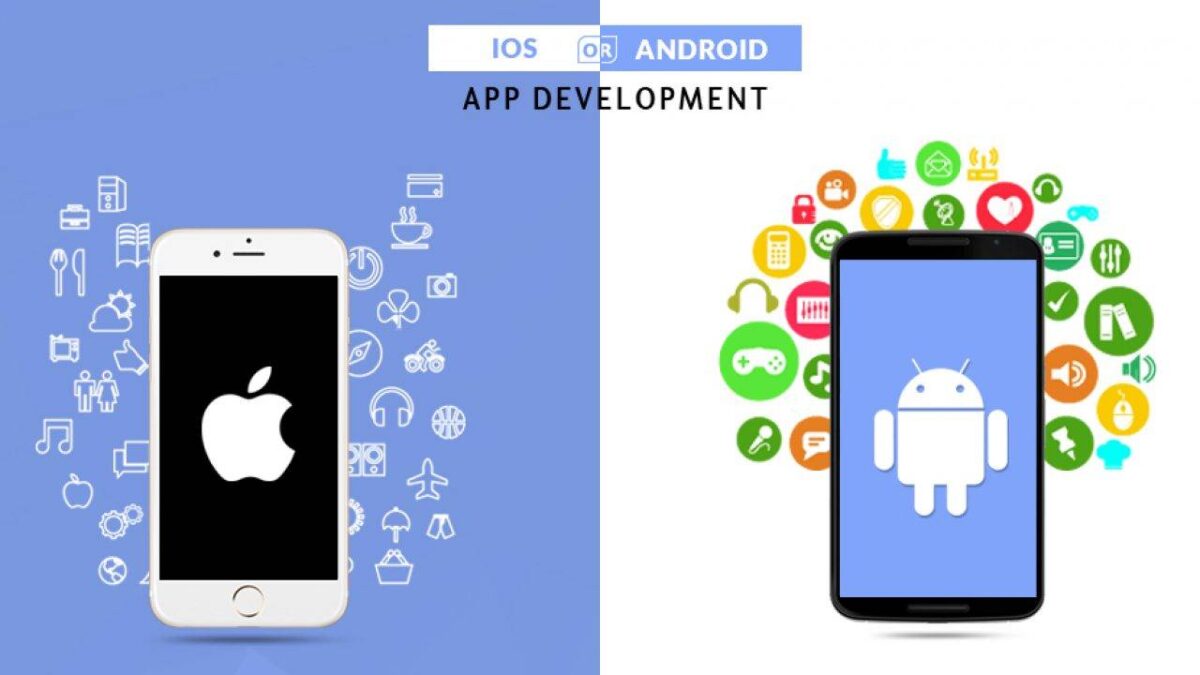iOS vs. Android apps: An operating system, also known as OS, is an application used as an interface between the hardware and software. Like a desktop application or software, a mobile application also needs a platform to operate. Android and iOS are the two of the biggest mobile operating systems in the market in today’s world. Andromo has recently launched a iOS app building platform. You can go through the article to read more about the app building platform.
Both the systems are different from one another. This is not just based on the development level but also in terms of design and marketing strategy.
Here is everything you need to about the app development of iOS and android:
Table of Contents
ToggleProgramming Languages
Android apps are usually developed in Java and other related languages. Java is a very common programming language; which app developers mostly prefer.
iOS apps are normally developed in Apple’s dedicated and Objective-C language. This is very easy to learn, especially for app developers who already have experience in C and C++ development.
App Development Tools
There are a plethora of mobile app development tools and platforms in the market today. For example, Android has its dedicated and open development platform, supporting various third-party apps and tools. This is a wonderful thing for developers as it allows them to try out many features and eventually enables them to add more functionality to their apps.
Apple provides a development platform as well, but along with a limited set of tools. Therefore, developers cannot use any external tool for development. This makes it harder for them to experiment with new things.
Development Complexity
As there are a limited type and number of devices, iOS development happens to be much easier than that of Android apps. Android OS is used by a range of different kinds of devices with other build and development needs. Whereas iOS is used only by Apple devices and follows the same build for all apps.
Suppose you are an app developer and developing for Android, your app targets to be compatible with most if not all the target platforms, devices and screen sizes. Adding to that, you might have to develop multiple Android versions according to the market requirements.
Multitasking
Apple’s app development platform is exclusive and much more stable with specific tools and limitations. In contrast, Android OS is quite versatile and allows dynamic app development for almost any purpose and even for multitasking. This makes things easier for you to develop your app.
One can say that this is a beneficial feature. Still, it also creates problems for new and amateur developers who are not very familiar with the concept of multitasking in apps. Along with this, Android is also too fragmented to work with just one version of an app.
Development Time and Cost
Although Android provides you with versatility, a downside to the same would be that due to the high fragmentation and the large variety of devices, Android app development can be much more time-consuming than the development of iOS apps.
Conclusion
Unlike iOS, android happens to be an open-source platform. A lack of app development standardization results in more devices, components, and software fragmentation to account for.
On the other hand, Apple’s closed ecosystem would mean that you’re developing a few standardized devices and operating systems.
That being said, the Apple App Store has much stricter rules and quality expectations along with a longer review process. As a result, it might take longer for apps to be approved. Infact, your app might even be rejected if it’s not up to Apple’s standards.
In the same way, the open environment of Android results in the fact that Android is much more susceptible to pirate apps and malware.
Apple is usually preferred as it is perceived as being more secure. This can be attributed to its closed nature, which is why iOS has a larger audience in the enterprise market.
Both iOS and android have their pros and cons regarding app development. It is the ultimate choice of you as the developer to see what your app is about and what suits your needs better. There are pros and cons in both, and they both solve various needs, so choose wisely.
Also Read: Do you Want to Back Up Microsoft 365? Why Backup Office 365? And Benefits
Related posts
Hot Topics
Understanding TruthFinder’s Background Check Features
Background checks have become increasingly relevant for personal safety and information gathering in digital environments. TruthFinder offers comprehensive background check…
How MLOps Is Shaping the Future of AI in Business
Artificial intelligence (AI) has evolved from a futuristic idea to a strategic necessity for companies looking to innovate, grow, and…



